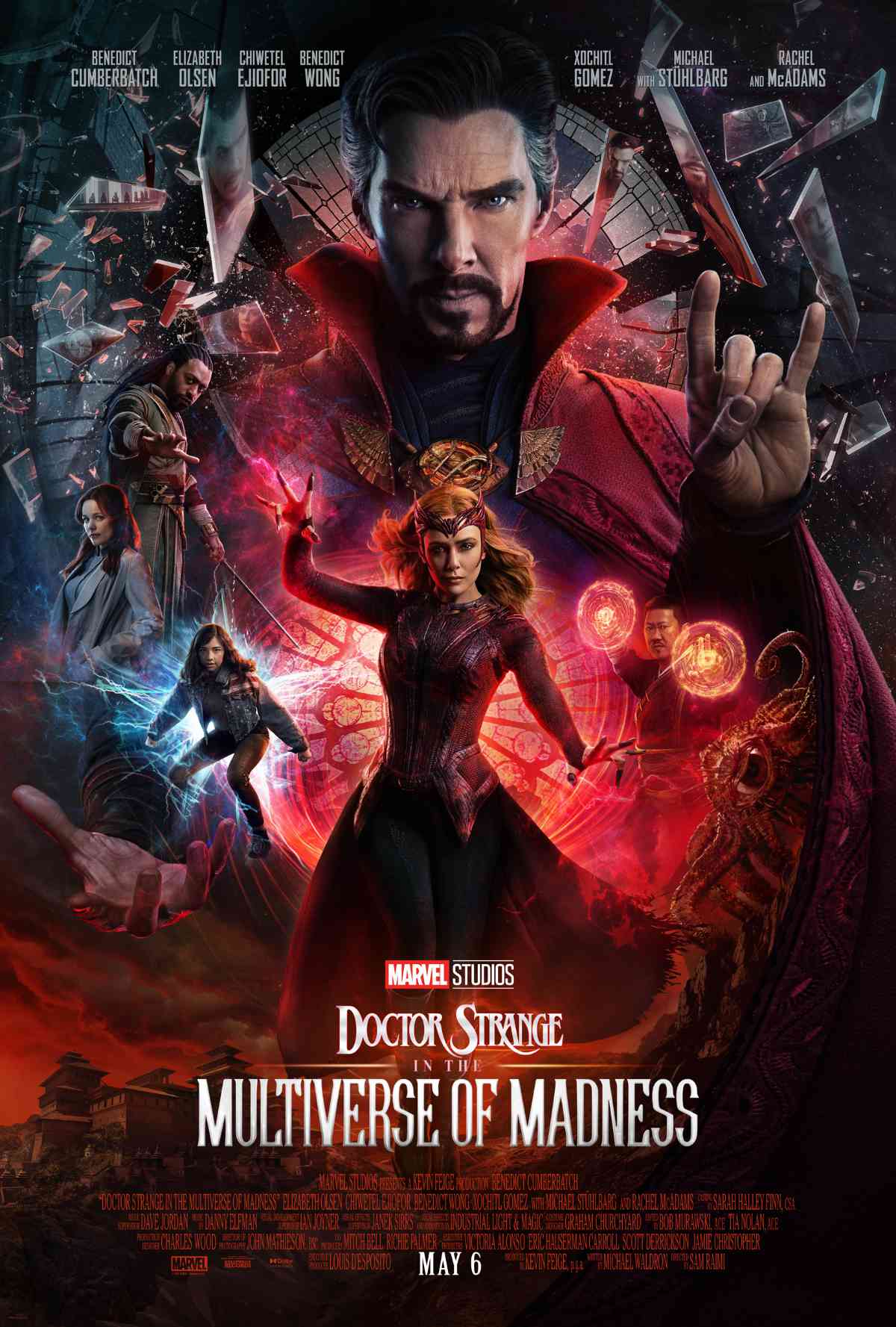Doctor Strange in the Multiverse of Madness Review
Doctor Strange in the Multiverse of Madness is Too Much, Too Little. For all the bombast and activity in this movie, the film feels strangely empty, a story in search of thematic meaning and spiritual resonance. This movie isn’t really about anything, while the first one, though smaller in scale, has more on its mind.
Scott Derrickson brought weight and emotion to the origin story of Doctor Stephen Strange (Benedict Cumberbatch). This time around, it seems as if there are too many checkmarks to be made instead of an organic character-based story.
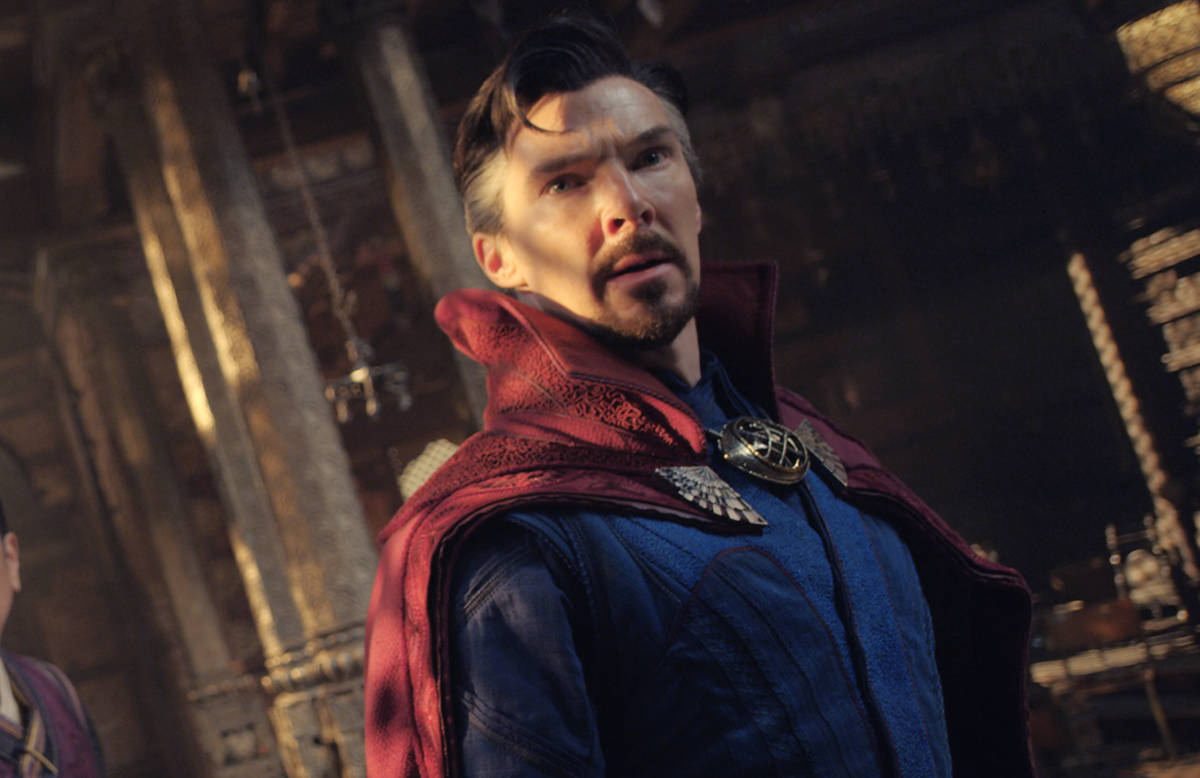
That’s not to say that Multiverse of Madness can’t show us a good time. It’s often very entertaining and funny, and there’s more of Sam Raimi in it than I expected – I was certain that the Marvel Cinematic Universe, at this point in its existence, would stifle his creative voice and sand over any edges, but Multiverse of Madness is decidedly a Raimi film, with many of his signature shots and humor.
Raimi is engaged here, but the issue isn’t Raimi’s level of involvement; it’s that he can’t seem to muster the passion that he did for Spider-Man, a character that he’s loved since he was a child. The character of Stephen Strange just can’t compare in Raimi’s mind, and that’s a problem in your Doctor Strange movie.
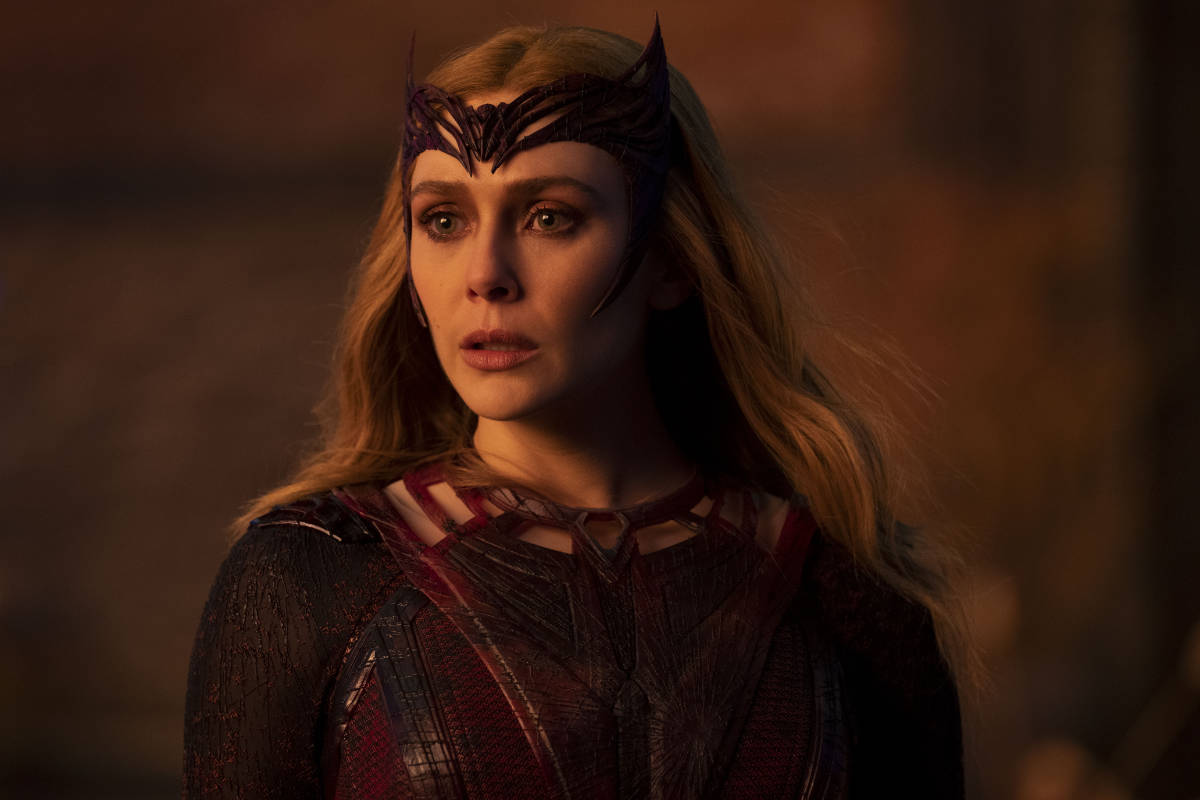
It’s not all Strange’s story anyway — Multiverse of Madness is as much a sequel to WandaVision as it is to the first Doctor Strange film. Wanda Maximoff (Elizabeth Olsen), when last we saw her, was being tempted by the Darkhold, an evil, mystical book that holds infinite power and temptation to anyone who reads its pages.
She sends demons to retrieve America Chavez (Xochitl Gomez), a young girl who can physically traverse the many dimensions of the Multiverse. When one of these monsters attacks America in New York City, Strange and Wong (Benedict Wong) are forced to try to protect her from Wanda the Scarlet Witch.
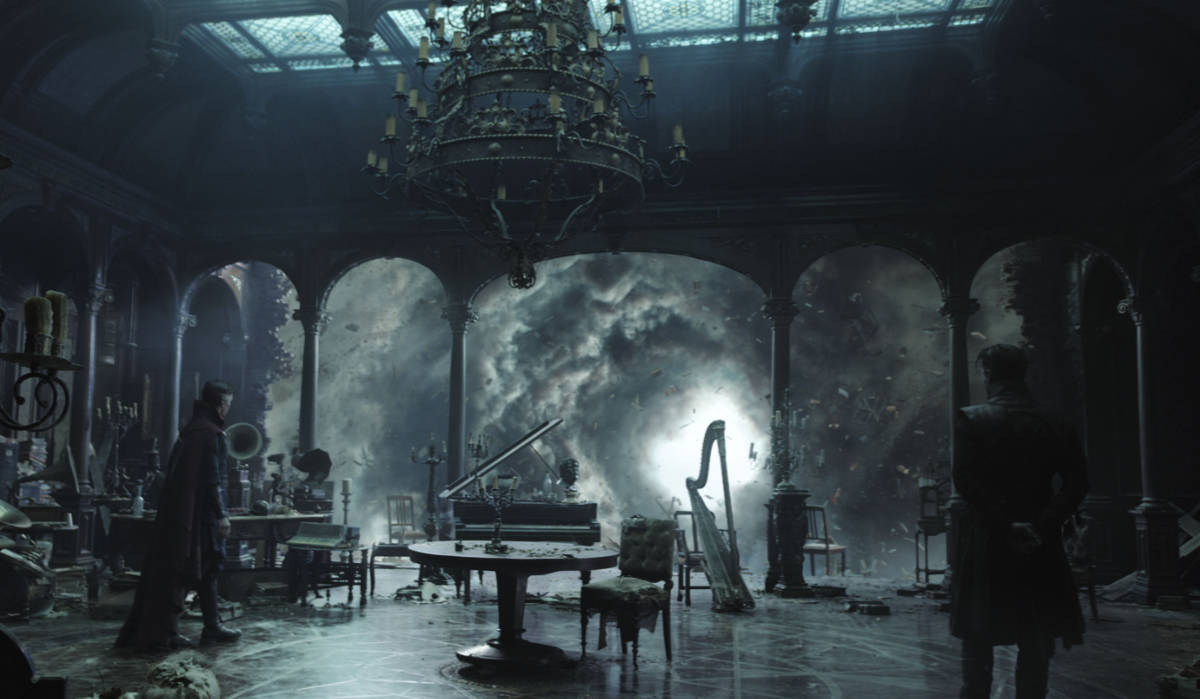
This entails traveling the many universes in the Multiverse, where Strange discovers that decisions he’s made in these other universes didn’t always end so well for him and for the love of his life, Christine (Rachel McAdams).
Strange’s travels bring him to the attention of the Illuminati led by Karl Mordo (Chiwetel Ejiofor), a group of superheroes that, in their universe, had a decidedly different experience with Stephen Strange than the one we saw in Avengers: Endgame.
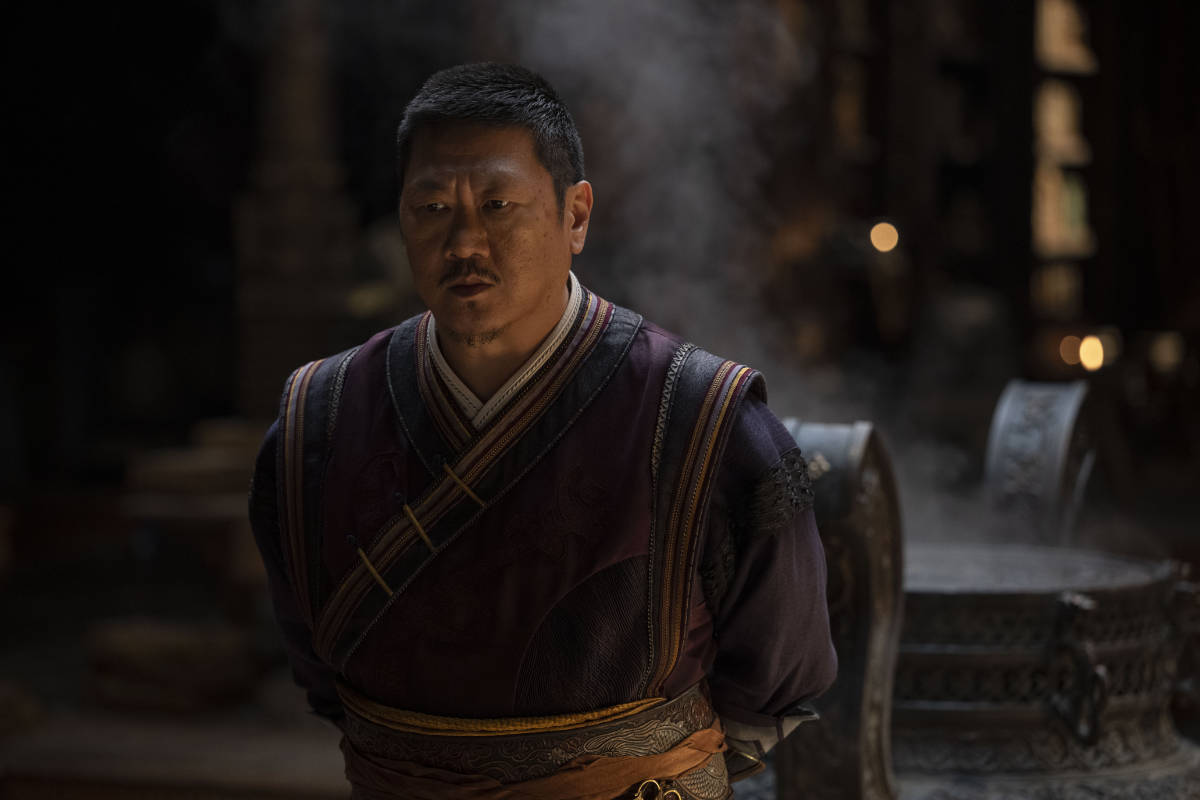
Sam Raimi seems to be having quite a bit of fun playing with the MCU’s toys while adding his spook-a-blast affectations a la Evil Dead 2 to the proceedings. Most of the time, it works – Multiverse of Madness gets quite scary at times and is also full of Raimi’s goofy slapstick humor. It’s a blast seeing Cumberbatch roll with Raimi’s swings, especially when we see all the different versions of Strange, and Cumberbatch seems game to wherever Raimi wants to take him.
The problem is that Stephen Strange doesn’t seem to be a character with agency; instead, Strange, this time around, is simply a character that things happen to. It’s a different contrast to the Strange we got in the original film; Scott Derrickson had a firm grasp of where Strange’s journey took him, as opposed to the character we get here. A lot happens in Multiverse of Madness, but I’m not sure if any of it means anything.
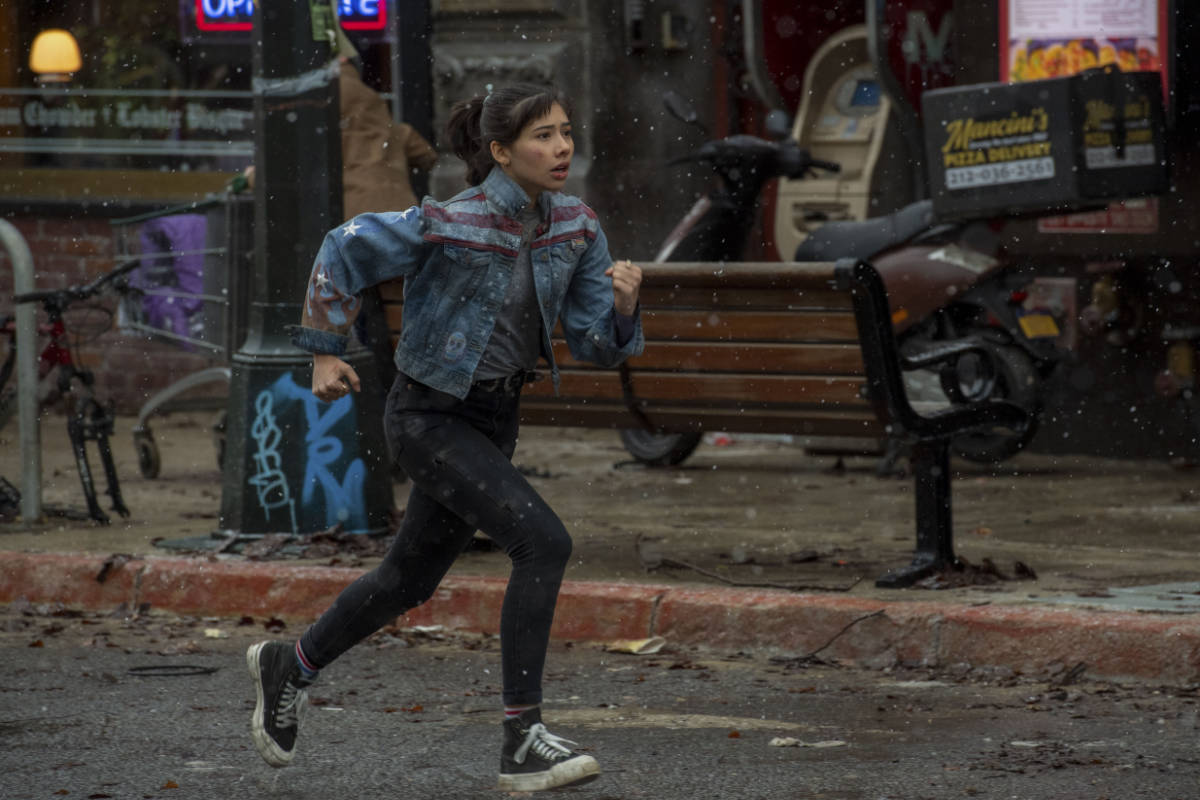
There is quite a bit of wheel spinning in this film, and it feels like it doesn’t have a clear thematic path. There are a ton of cameos – some you may know about and some that may surprise you, but none of them really make any deep impression since it’s not about creating characters that matter as opposed to giving audiences something to react to.
Will these characters be important later on? I’d say at least three of them will be — not to spoil anything, but I expect some interesting casting decisions and new projects to be announced shortly after this film’s release — but again, they don’t resonate; they’re just pins to be stuck on a board that may be referenced later.
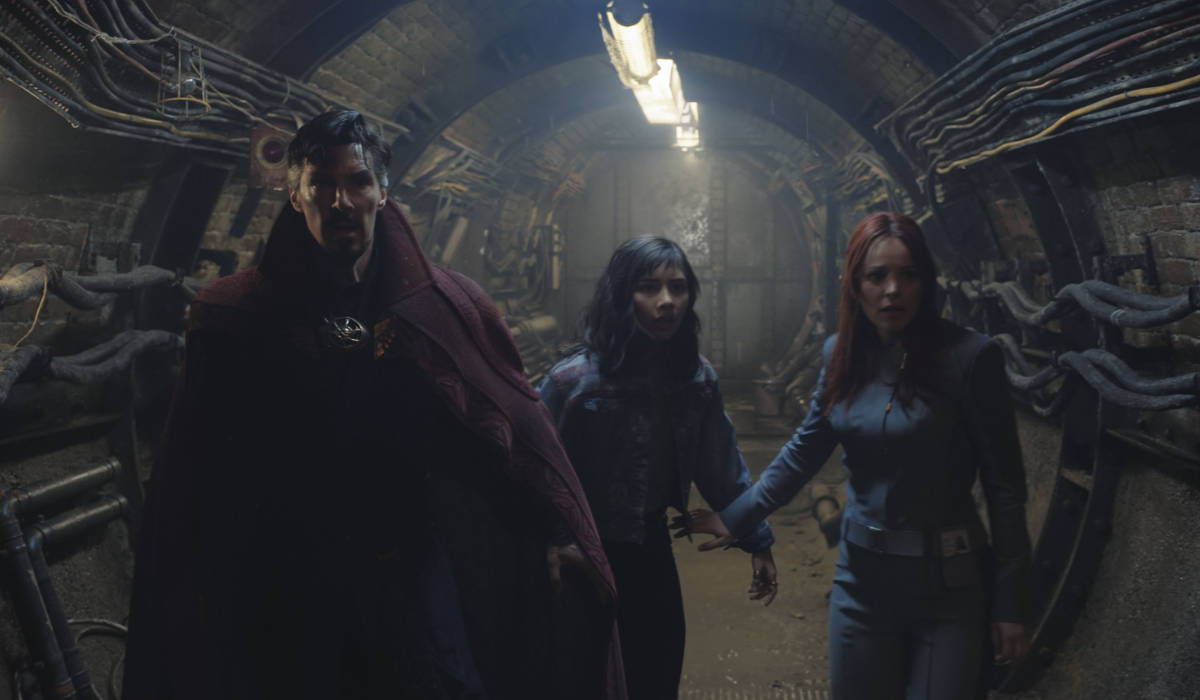
So much of Doctor Strange in the Multiverse of Madness feels like an obligation to the MCU than anything that stands on its own. And if you haven’t been keeping up with it all, this movie will leave you questioning all of it, expecting you to know the significance of this character or that situation. If you’re lost, you’re lost.
Even so, Multiverse of Madness is never dull. There are some innovative, exciting moments – a magical duel between two characters is punctuated by musical notes, for example, or a very psychedelic trip through the different states of being in the different universes is visually interesting and Raimi keeps everything moving at a fast pace.
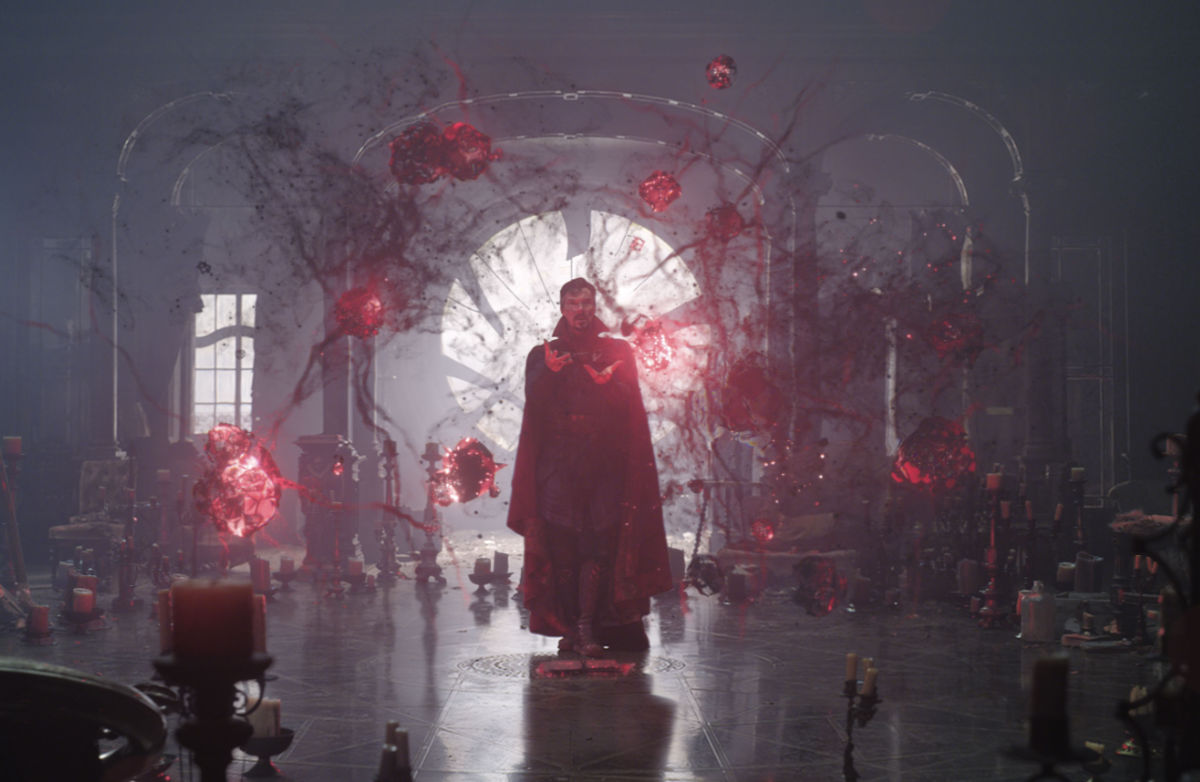
Michael Waldron’s script manages to keep a lot of plates spinning, even when we’re not sure how many of those plates are important. There are moments where we get some deeper understanding of Strange as a character, but those are too fleeting. At least in the first film, Strange had more purpose – this time, he’s simply a catalyst. But Benedict Cumberbatch still embodies the character deeply, and he commits even when things get hectic and frantic.
Doctor Strange in the Multiverse of Madness feels like a film made by a committee, and while Raimi still has a strong voice, it doesn’t feel like his heart is too invested. That makes Multiverse of Madness entertaining, but not much more than that. I think most audiences will have a good time with this movie, but that’s all it is – a good time, nothing more.
DOCTOR STRANGE IN THE MULTIVERSE OF MADNESS REVIEW SCORE: 6.5 OUT OF 10
The Walt Disney Studios will release the Marvel Studios film on Thursday, May 5. It is rated PG-13 for intense sequences of violence and action, frightening images, and some language.
